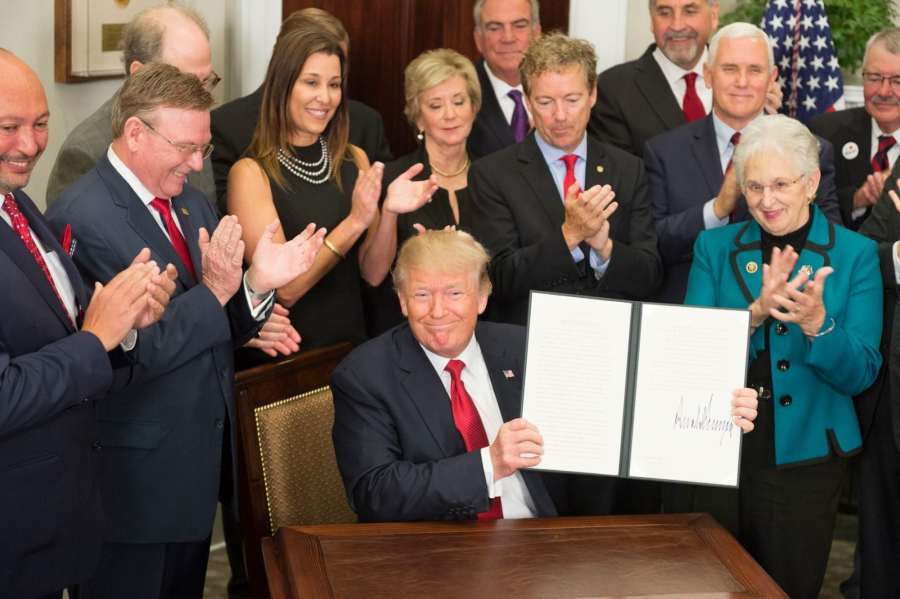The Trump Administration's thirty-ninth week in office primarily concerns the looming changes to healthcare brought by President Trump's suspension of the Affordable Care Act. As a result of that, Congress has been given approximately sixty days to propose alternative guidelines for the Obama-era law. In the past, Obama's requirement for employers to provide birth control methods have led to the lowest number of unintended pregnancies in 30 years, as well as a decrease in abortion rates. While the effects of Trump's executive order include aspects such as increased premium costs and shifting requirements for health insurance companies, the executive order also affects the Obamacare provisions for accessible birth control.
Earlier this week, President Trump created a new rule that states that employers will no longer be required to provide birth control to their employees. According to the former business magnate, President Trump supported his decision, stating, "For too long, the federal government has used the power of the state as a weapon against people of faith, bullying and even punishing Americans for following their religious beliefs." Under Trump's new healthcare rules, services such as intrauterine devices, birth control and emergency contraception cases will no longer be offered by health care companies. Instead, companies can claim religious or moral reasons in order to avoid conducting abortions.

Nevertheless, different organizations have opposed the Trump administration regarding the modifications to women's healthcare for the future. According to the Department of Health and Human Services, birth control is necessary because "women can better avoid unwanted pregnancies and space their pregnancies to promote optimal birth outcomes." Others who disagree with the new regulation of birth control are the Massachusetts attorney general Maura Healey, and Pennsylvania attorney general Josh Shapiro. Both government officials have reportedly filed lawsuits in federal court against President Trump. In addition, other attorney generals have come together to write a letter to protest the new rule.
Shapiro argued for the previous rules under Obamacare health reform and the significance it held for women, saying:
Before the Affordable Care Act mandate, one in three women struggled to afford birth control.Since the mandate has been put in place, and these preventative services are covered by federal law, less than four percent of women struggle to pay for that care.

Recently, the Trump Administration's engagement with birth control methods have accrued criticism and controversy. Earlier this month, a 17-year old teenager attempted to cross the U.S/Mexico border but was detained by authorities. After receiving news that she was pregnant from a medical examination, she attempted to get an abortion but was halted by officials from the Trump administration. Since then, organizations such as American Civil Liberties Union have rallied for her choice to obtain an abortion. As of this week, the undocumented teen has obtained the abortion after the decision of a federal court overruled the prior decision from the Trump administration.
The tension between birth control and President Trump evokes questions concerning the future of women's healthcare under the Trump administration. While it is just one component of healthcare reform, the new regulation of contraception and women's healthcare may undergo drastic changes in the near future. Moreover, the elimination of contraception and by extension, the Affordable Care Act, may lead to a more competitive healthcare insurance market that offers less preventative care for women.
- http://www.marketwatch.com/story/thousands-of-women-are-invoicing-donald-trump-for-their-birth-control-2017-10-25
- https://www.salon.com/2017/10/19/trump-attacks-birth-control-but-states-are-ready-to-fight/
- http://thehill.com/regulation/court-battles/357081-undocumented-teen-gets-abortion-before-trump-can-appeal














